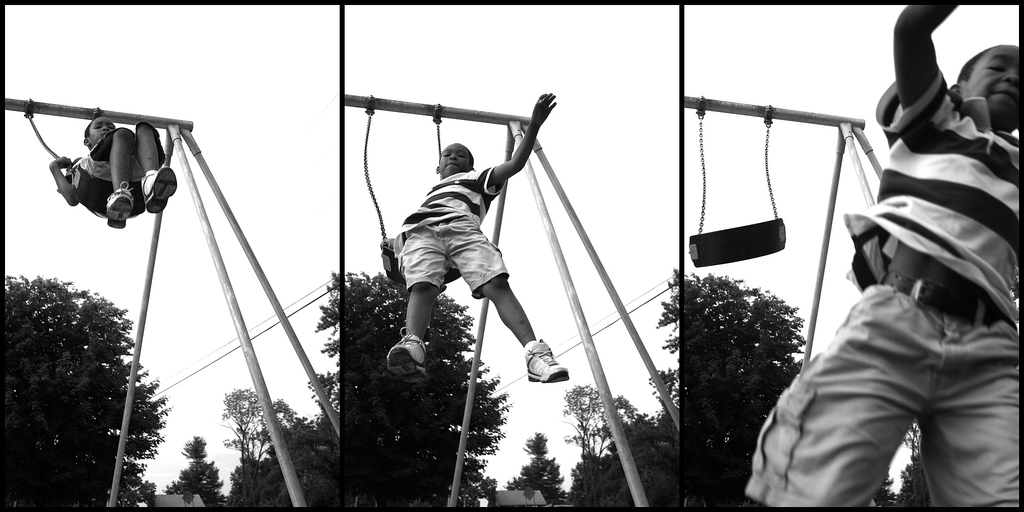Lots of parents want to show their kids empathy, but what’s the best way to do that? How do we really let our kids know “I understand how you feel” and give our kids the experience of us parents, really “getting” them?
We are going to propose something that may be a little controversial and you might disagree with us. We believe that there are more effective and less effective ways to express empathy.
How not to express empathy (or at least, less effective ways):
A sad child comes to parent and says, “Dad, I don’t like John. He’s a meanie. He told me I couldn’t play with him.”
- Don’t say this: “I know just how you feel. I felt the same way when I was your age.” This approach might actually create some defensiveness, e.g. the child might think, “No, you don’t know how I feel”. Whether we are kids or adults our “inner world” of thoughts and feelings, is a private place. Saying to someone else “I understand” is not as effective as showing them that you understand (See examples below).
- Don’t say this: “When I was a kid I had a friend like John, let me tell you what happened . . .” Telling your child a story about your childhood may be a very connecting thing to do in another situations, but it can be a distraction when you are expressing empathy. You don’t need to have had a similar experience in order to empathize with your child, you only need to effectively communicate that their experience and their feelings make sense to you right now in the present (See examples below).
- Don’t say this: “You’ve had a lot of fun with John in the past. He’s a nice boy maybe you did something that he didn’t like.” It may be true that your child and John will find a way to reconcile and your child may have caused John to not want to play, however statements like this don’t engender empathy. This approach may cause your child to feel guilt or defensiveness at a time when he is seeking understanding and comfort. This may be an appropriate thing to say, but only AFTER you’ve really shown that you understand his feelings first (See examples below) and have shifted into a problem solving mode.
- Don’t say this: “That’s not nice to tell others they can’t play.” This is a statement about your values or judgments. You may believe that John should have invited your child to play, however stating your values or judgments about a situation does not help your child feel understood, and may cause your child to feel indignation along with his disappointment/hurt/anger, making it more difficult for him to have compassion for the other child in a similar situation in the future. As parents, certainly there are times when we share our values with our children, so this may be an appropriate thing to say, but only AFTER you’ve really shown that you understand his feelings first (See examples below).
How to express empathy:
Same situation: A sad child comes to parent and says, “Dad, I don’t like John. He’s a meanie. He told me I couldn’t play with him.”
- Say this: “You don’t like what John did. He called you a meanie and told you not to play with him.” Mirroring to your child sends a very clear message that you understand what they’ve said. After all, you’ve repeated it back to him nearly word for word. This might not be how you speak naturally and you might be concerned that you sound like a parrot, but in our experience this is a very connecting way to communicate (And if it’s not, the child will let you know and you can use one of the techniques below).
- Say this: Don’t say anything at all or say “Hm, uh-huh.” We believe small utterances like these or even silence, said with eye contact, a facial expression of tenderness and without alarm, speak volumes to children. You’re communicating (mostly through your body language), “What you are saying is important to me. You’ve got my attention. I’m not going to be alarmed because I have confidence in you and your abilities to work through this problem. You’ve got my support.”
- Say this: “You sound disappointed. That didn’t go the way you wanted it to.” By helping him identify his feelings you also, without saying it explicitly, send him the message “I understand what that feels like. I’m right there with you.” By identifying his feelings he builds a growing awareness of his own emotional vocabulary and you are building his emotional intelligence. If you guess at his feelings incorrectly, don’t worry, he will let you know you’ve missed the mark. He’ll say, “I’m not disappointed. I’m mad.” And then you can validate his mad feelings by saying, “You are mad. You wanted him to let you play with him and he didn’t.”
Do you agree with us about these ways to express empathy? Or do you disagree? Either way we’d like to hear from you. What are your questions about this? Put them in the comments below.
May you create warm connections in your family,
Cecilia and Jason










I am someone who has taught Love and Logic for many years and empathy is key. It is not condoning a behavior or feeling, yet as you share, it is important ‘how’ it is delivered. And body language needs to be congruent w/the word choice.
uh love it’s really helpful. I told my family and it’s helped our home life.
Thanks, Max! I’m glad it helped.